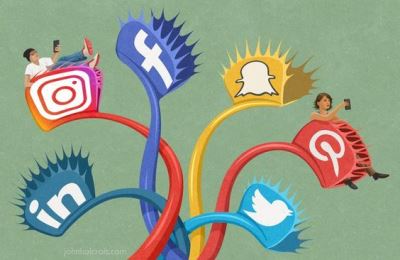This article explains the position of Ellen Pao (ex CEO of Reddit and now quite opposed to Silicon Valley giants for a number or reasons including accusations of gender discrimination) ‘Social Media Reward Bad Behavior’ or another similar interview in Inc.com ‘Why the Trolls Are Winning the Internet‘. Her point is that she observes that social media today rewards bad behaviors because it is not managed in the interest of the people, and because possibly the teams managing the current tools are not sufficiently diverse.

“It makes me really sad, because the internet is such a powerful tool, and it introduced this idea that you could connect with anyone. And it’s been turned into this weapon used to hurt and harass people.” She is quite strong in her words about the impact of social media on the users today.
One of the reasons she mentions is that “One of the big problems is that these platforms were built by homogeneous teams, who didn’t experience the harassment themselves, and who don’t have friends who were harassed. Some of them still don’t understand what other people are experiencing and why change is so important.”
An important point is that she does not believe that this problem can be addressed at the scale of the current social networks. “I don’t think it’s possible anymore except at very small scale, because the nature of interactions at scale has become very attention-focused: “The angrier and meaner I am online, the more attention I get.” This has created a high-energy, high-emotion, conflict-oriented set of interactions. And there’s no clear delineation around what’s a good or a bad engagement. People just want engagement.“
All in all, her view is quite negative on the possibility for social media to change quickly because of its interest to engage people to spend more time on their platform. Still she provides an interesting path for improvement, which is to make sure there is an increased diversity in the social media teams.
Refer also to our previous post ‘How Facebook Model is Addiction and Growth – and Why It Can’t Change‘
